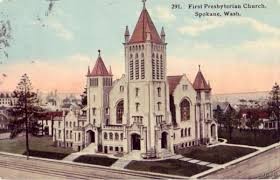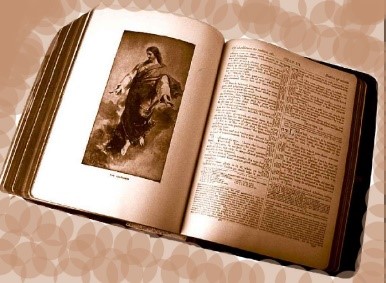Associate Reformed Presbyterian Church

Introduction
The Associate Reformed Presbyterian Church preaches the Gospel of Jesus Christ and has its roots in the Reformation. Two of its major leaders were John Calvin and John Knox. The church was part of the Scottish Immigrants who first came to America in search of religious freedom that brought their faith here to America.
The Associate Reformed Presbyterian Church is usually found in the Southeast in rural communities. Though focused in the Southeast, it has spread to the urban centers and across the United States and into Canada. It is sometimes referred to as the ARP Church. They characterize their belief by combining both doctrine and organization, and call that mixture Church Order.
There are many Presbyterian Churches that are part of the Associate Reformed Presbyterian Church. Many of these churches disagree with each other concerning doctrines and practices. The split among the Presbyterian Churches within this denomination is caused because the origins of the Presbyterian churches followed Calvinism. The more contemporary churches do not agree with Calvin and the Westminster Confession of Faith, the baptism of the infant children, the exclusive use of the Psalms, the common communion cup, the limited ordination of church offices being held by men only, and the full Calvinist doctrine of salvation.
History
John Calvin was a key contributor to The Associate Reformed Presbyterian Church. John Calvin converted from Roman Catholicism and had been training to become a priest. It was while being exiled in Geneva Switzerland that Calvin developed the Presbyterian pattern for the Church government. Presbyterian means elder and comes from the Greek. The elders are chosen by the people and work with the ministers of the Word and Sacrament.
The history of the Associate Reformed Presbyterian Church begins with the preaching of John Knox who was a Scottish official in the Church of Scotland in 1560, who studied under John Calvin in Geneva. John Knox led the Parliament of Scotland and adopted the Reformation which happened in the 1560. The Church of Scotland had conflict and arguments over control over the way of life for the church and for the state. King William III restructured the Church of Scotland in 1688 and established The Presbyterian Church of Scotland. There were still problems and a group of Christians under the leadership of Ebenezer Erskine in 1733 formed the Associate Presbytery. The Reformed Presbytery was formed in 1743. Both of these churches, the Associate Presbytery and the Reformed Presbytery, spread to Northern Ireland and became the Presbyterian Church in Ireland. Presbyterianism in England had to be established in secret in 1572. It was in 1647 the Church of England was Puritanical, however, the Parliament of England allowed Presbyterianism.
Belief
The Associate Reformed Presbyterian Church stands on the principle of the Westminster Confession of Faith. The Westminster Confession of Faith follows the tradition of the Calvinism and is influenced by the Puritan theology, as well as a systematic description of Calvinist accepted belief. It was drawn up in 1647 by the Church of England and soon became the doctrine in the Church of Scotland. The Westminster Confession of Faith addresses concerns on church doctrine, worship, government and the discipline of the Church of England.
The Associate Reformed Presbyterian Church is committed to the Lordship of Jesus Christ and to the Word of God, the Bible. The Church believes the Holy Scriptures are inspired by God and infallible truth and divine authority and are the basis for their faith, worship and life. The Holy Scriptures are to be believed and obeyed. The Associate Reformed Presbyterian Church believes there is only one living and true God who is infinite in being and perfection, pure spirit, invisible, without body, most wise, most holy.
The Associate Reformed Presbyterian Church believes in the unity of the Godhead to be in three persons, one of substance, power and eternity; God the Father, God the Son and God the Holy Ghost. The Father is of none, neither begotten nor proceeding; the Son is eternal begotten of the Father; the Holy Ghost eternally proceeding from the Father and the Son. The Church believes the Son of God is eternal God equal with the Father. He was without sin and conceived by the power of the Holy Ghost born of the Virgin Mary. They believe the Lord Jesus was sanctified and anointed with the Holy Spirit, having wisdom, knowledge, full of grace and truth. The Lord Jesus willingly suffered, was crucified and died, was buried, and remained under the power of death, He rose on the third day from the dead and ascended into heaven, and sits at the right hand of his Father to make intercession. He shall return to judge men and angels, at the end of the world.
Cite Article Source
MLA Style Citation:
Holstein, Joanne “Associate Reformed Presbyterian Church:.” Becker Bible Studies Library Jan 2006.<https://guidedbiblestudies.com/?p=2590,>.
APA Style Citation:
Holstein, Joanne (2006, January) “Associate Reformed Presbyterian Church:.” Becker Bible Studies Library. Retrieved from https://guidedbiblestudies.com/?p=2590,.
Chicago Style Citation:
Holstein, Joanne (2006) “https://guidedbiblestudies.com/?p=2590.” Becker Bible Studies Library (January), https://guidedbiblestudies.com/?p=2590, (accessed).


